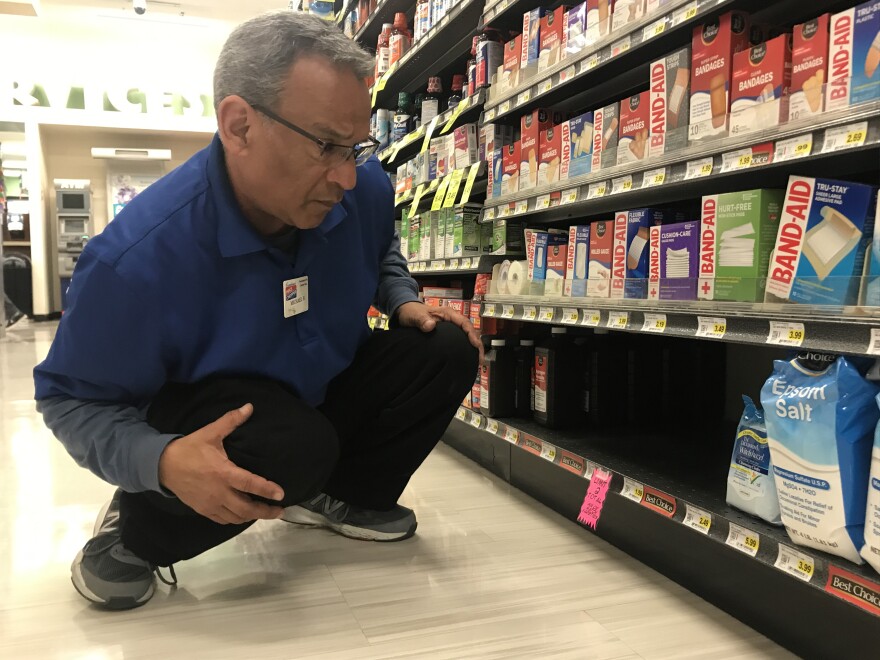Lila Symons was waiting in line at a grocery store in midtown Kansas City on Thursday, wearing a surgical face mask and pushing a cart full of paper goods and non-perishable foods.
When she returned to her Kansas City home later that afternoon, she planned to hunker down in a self-imposed quarantine for the next week or two. She said she has Crohn’s disease, a condition that causes inflammatory bowel problems. She takes medication that helps control her symptoms, but that suppresses her immune system.
Thursday morning, her doctor sent her home with instructions to avoid crowds and to do what residents in areas so far harder hit by COVID-19 have been doing for weeks: Cover her face.
“I know there are people having debates that (the mask) doesn’t protect you, but I was given this today when I went to the doctor and they told me to keep it on," she said.

Not far from the checkout line, Michael Hernandez, an assistant manager at the same store (the owners preferred KCUR not identify it by name) was scouring the shelves to see where he needed to restock.
“I filled up the alcohol twice, it’s completely out,” he said. “The baby wipes, the Clorox Bleach, Lysol, all them are completely out. It’s hard to come by.”
He recently ordered five times his usual supply of hand sanitizer. Now, it's all gone. Hernandez says one lady responded by making it herself.
“She used glycerin and she mixed it with alcohol and she says it’s a lot easier to squeeze out of a bottle,” he said.
While the run on hand sanitizer is a national problem , the federal Centers for Disease Control and Prevention emphasizes hand washing is the best option.
Meanwhile, the TrueValue hardware store in Mission, Kansas, is having an equally hard time keeping the stuff in stock.

On Thursday, assistant manager Mary Murphy walked the aisles of cleaning supplies, bleach and alcohol, pointing out wide swaths of bare shelves.
There were only two or three cans of disinfectant spray left on the long shelf and she suspected the bright green and white spray bottles of spray cleaner — with bleach — will be gone soon, too.
They'd also had a run on face masks, typically bought by painters and sheet-rockers. On this day, Murphy said even the so-called respirator masks were being snatched up. Those are identified by the Occupational Safety and Health Administration as protective gear specifically designed for those “who work in occupations classified as very high exposure risk to pandemic influenza, or influenza like symptons."
“The mask pretty much goes over three-fourths of the face and they have the two breathers on the side like a bug,” Murphy said. “They’re $50 and up and we sold $150 worth this morning — just three respirators but now they're sold out.”
It was a young man, maybe in his twenties or thirties, Murphy guessed. He said he wanted to be prepared if he and his family either decided, or were required, to quarantine.
“He also bought some propane and some charcoal,” she said. “He said if they have to hunker down, they’ll have enough to eat and they'll have energy.”
Laura Ziegler is a community engagement reporter at KCUR 89.3. You can reach her on Twitter @laurazig or by email at lauraz@kcur.org.





